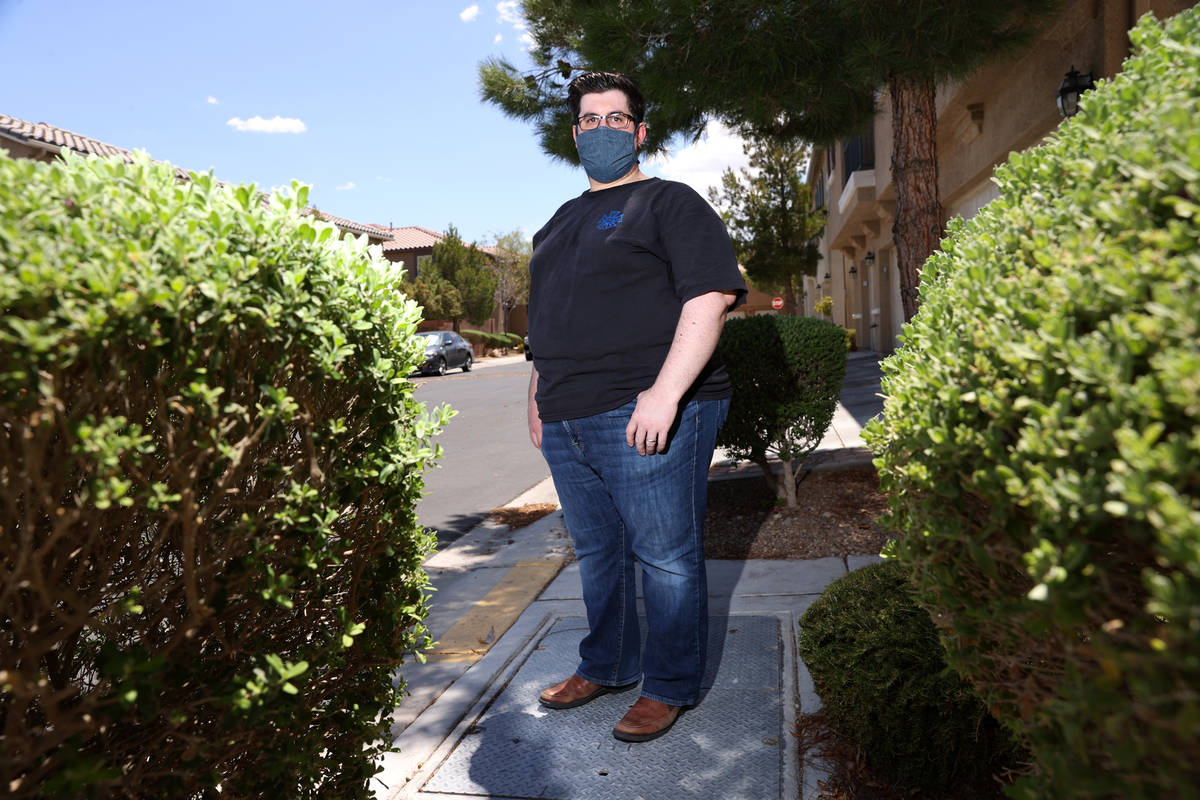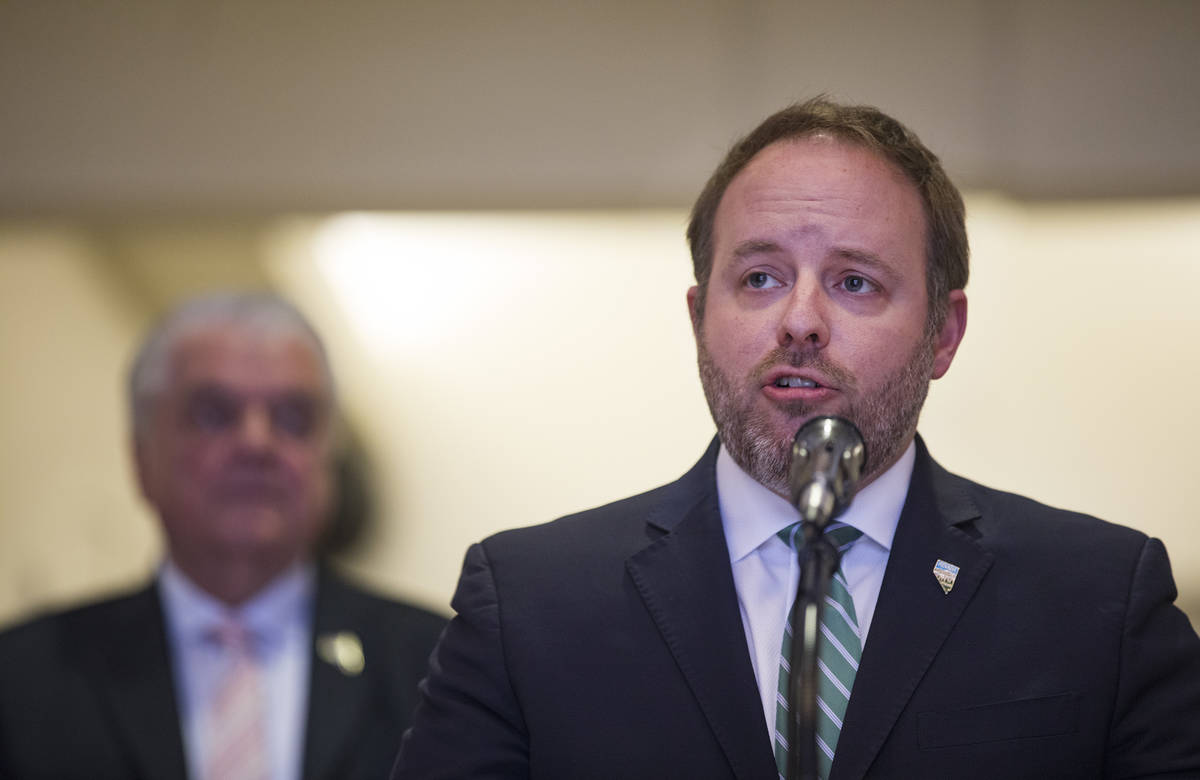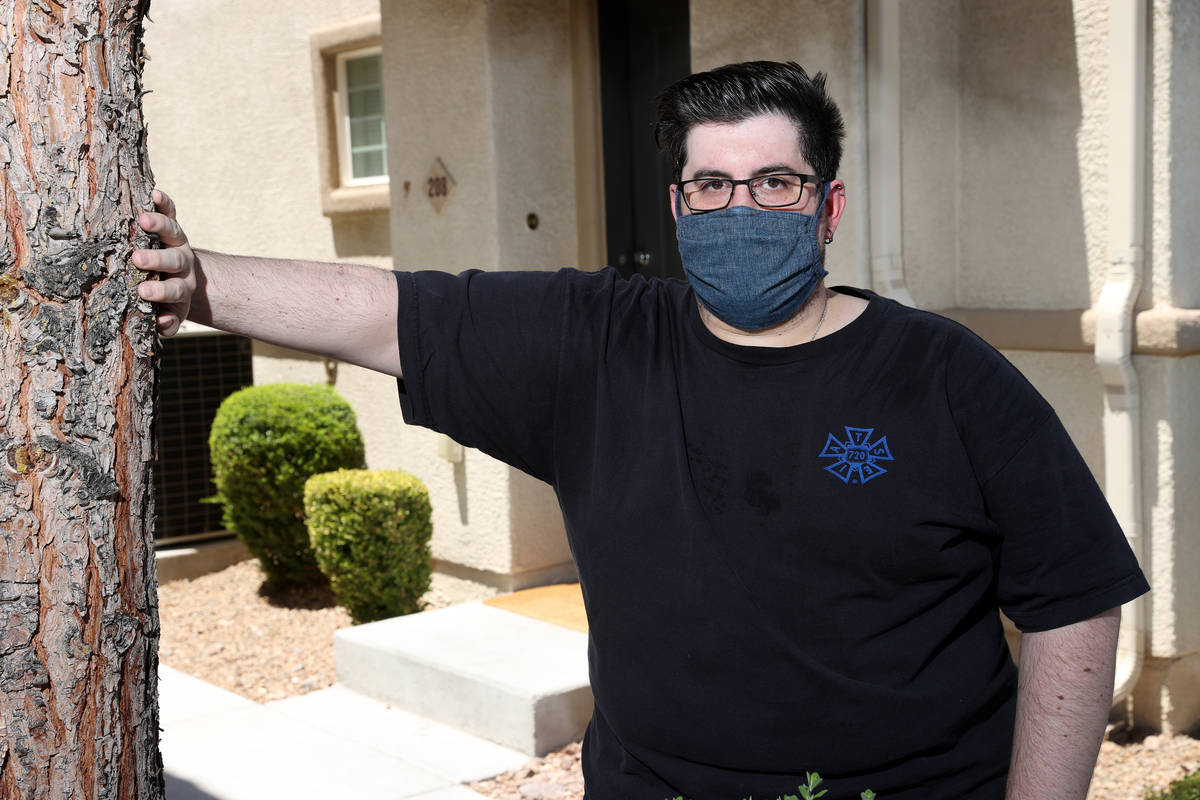Need financial assistance to pay housing bills? You have new options.
Nevadans facing financial hardship due to COVID-19 can now apply for rental assistance from the state.
Officials plan to distribute $30 million of federal funding authorized under the CARES Act, bolstering tens of millions that local governments have also pledged to keep renters in their homes.
Tenants can apply for as much money as it will take to cover whatever they missed paying in April, May and June, granted they meet certain criteria, state Treasurer Zach Conine said Monday. Payments will be made directly to landlords and should begin arriving in about two weeks. Tenants who have missed rent payments can begin the application process online at housing.nv.gov.
Conine said the program will help keep Nevadans in their homes once a statewide residential eviction moratorium expires on Sept. 1. Nonpayment of rent is the most common cause of eviction in Nevada, and tenants can be forced from their home in as little as 15 days once their rent is overdue.
Rental assistance is expected to both help the state’s battered economy recover and support public health initiatives, Conine said.
“It’s hard to suggest that people stay home and be safe if they don’t have a home to stay in,” he said.
Gov. Steve Sisolak announced the eviction freeze March 29 after the state’s outbreak began, not long after he ordered a mandatory shutdown of most nonessential businesses that led to Nevada’s unemployment rate growing to the largest in the country. Conine said his office estimates between 100,000 and 130,000 renter households in the state have missed at least one rental payment since.
Las Vegas stagehand Bill Livolsi, who prefers a gender-neutral pronoun, counts themself among those who have fallen behind. The 35-year-old has been only able to pay half the rent since the state shut down and halted the region’s convention season.
Livolsi, whose family has been living on unemployment benefits during the outbreak, said they need rental assistance to avoid eviction. Their lease is up at the end of this month, at which time their rent will increase by almost $200 a month.
“We’re not expecting to go back to work before next year,” Livolsi said. “I’ve been signed in and waiting for a call since March, and there just are no calls.”
How to qualify
Funds will be awarded on a first-come, first-served basis. Tenants will not have to pay back the rental assistance to the government.
The program launched Monday is only available to people owing rent for a residential property. The state will establish a separate $20 million commercial rental assistance program in the coming weeks, Conine said.
How far the state’s rental assistance will stretch depends on how much money is owed by the people who qualify for the subsidies, Conine said. The average two-bedroom apartment in Nevada rents for about $1,200 a month.
Conine said he expects demand for rental assistance to exceed the CARES Act funding, but the state is working with the Nevada congressional delegation to secure more.
“We’ll probably take applications until we’re sure all the funds will go out,” he said.
To qualify for the state’s rental assistance:
■ A tenant must rent in Nevada, have an active lease and owe back rent.
■ The tenant must be able to show they have suffered financial hardship related to COVID-19, such as losing their job, a reduction in work hours or a reduction in pay.
■ The tenant’s household must have liquid resources totaling less than $3,000. Their gross annual income must be below 120 percent of the area median income, which in Clark County is $81,000 or less for a household of three people.
■ The tenant must also not be already receiving rental assistance through a federal housing voucher.
Only one tenant per lease will be eligible for assistance. However, if multiple people are living in one home under separate leases, they are each eligible for assistance.
The state has decentralized approving and distributing rental assistance to speed up the process, Conine said.
Officials hope to avoid a quagmire similar to the one that has reportedly left some out-of-work Nevadans waiting months to collect unemployment benefits from the state.
Governments also offer help
In Clark County, the state’s rental assistance program will be administered by a collection of 14 nonprofit organizations that the county government has contracted with to accept applications, vet the claims and distribute funding to landlords. All of them have experience providing rent or utility assistance to the community, and they are all working within one system to ensure the same payment isn’t made multiple times.
Administrator of Human Services Tim Burch said renters needing assistance can apply directly with the selected nonprofits online or by visiting their offices. A list of the nonprofits can be found at HelpHopeHome.org. In-person applications can also be submitted at the county’s social services offices.
“We tried to create a streamlined process where there’s as few bottlenecks as possible,” Burch said.
In addition to the statewide funds, the county has also earmarked $30 million of CARES Act funding for residents who can’t pay their rent because of COVID-19, Burch said. The county has the same criteria as the state to qualify for assistance.
Conine said he expects about $50 million of assistance funding will be paid out to Clark County residents between the two programs.
A similar program recently launched by the city of Las Vegas shows demand for rental assistance is high.
The city began taking applications July 1 for $4 million in rental assistance, enough to help between 1,000 and 1,500 households. Officials stopped taking applications less than two weeks later, after about 5,500 were submitted, city spokesman Jace Radke said.
Las Vegas will forward any applications it does not have the funding to address to the nonprofits partnered with the county, Burch said.
Conine said government officials expect there will be kinks to iron out as the program gets underway. Thinly stretched government workers began putting together the rental assistance program “only a couple of weeks ago,” he said.
“The goal of getting money out the door is the most important part,” he said. “We can’t let the perfect be the enemy of the good.”
Livolsi said they spoke with one of the nonprofits partnered with the county on Tuesday, and is in the process of submitting documents to them to determine whether they qualify for assistance. The stagehand is hoping they acted quickly enough to receive aid.
The people I’ve spoken to are pretty confident it is going to run out relatively quickly,” Livolsi said.
Livolsi has already hit a frustrating snag applying for assistance. The stagehand said they called every nonprofit participating in the program on Monday to sign up, but none were ready to process applications.
“Some of them are supposed to call me back,” Livolsi said.
Contact Michael Scott Davidson at sdavidson@reviewjournal.com or 702-477-3861. Follow @davidsonlvrj on Twitter.
Editor’s Note: This story has been updated to correct the phone number for the nonprofit Money Management International.
Nonprofits providing rental assistance
The following organizations are taking applications for rental assistance from tenants in Clark County.
— HELP of Southern Nevada: 702-369-4357, info@helpsonv.org
— HopeLink of Southern Nevada: 702-566-0576, info@link2hope.org
— Neighborhood Housing Services of Southern Nevada, Inc.: 702-649-0998
— United Labor Agency of Nevada, Inc.: 702-648-3500, services@uland.org
— Southern Nevada Community Health Improvement Program: 702-369-2500, resource@snvchips.org
—Economic Opportunity Board of Clark County: 702-445-7105, info@eobcapsnv.org
— Lutheran Social Services of Nevada: 702-639-1730, info@lssnv.org
— The Salvation Army: 702-870-4430, lasvegasinfo@usw.salvationarmy.org
— Family Promise of Las Vegas: 702-638-8806, info@fplv.org
— Jewish Family Service Agency: 702-732-0304, info@jfsalv.org
—Money Management International, Inc.: 866-889-9347
—Safe Nest: 702-646-4981
—Emergency Aid of Boulder City: 702-293-0332
—Nevada Partners, Inc.: 702-844-8000































